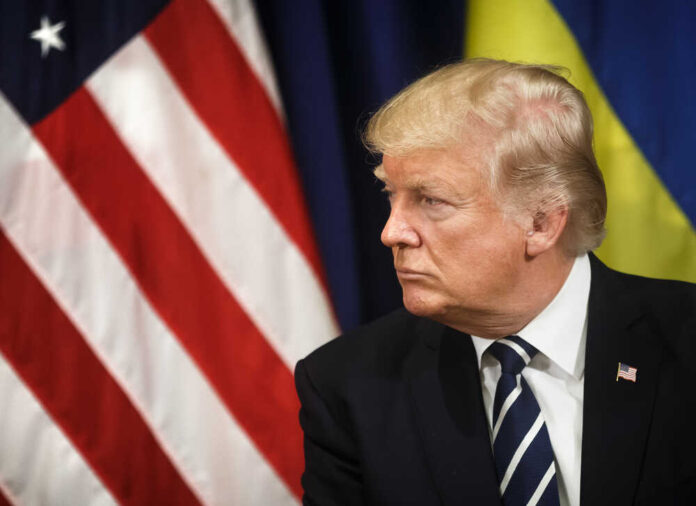
According to a report, Donald Trump, the 45th president, does not support birthright citizenship and promises to change procedures once he is reelected.
The Fourteenth Amendment was passed so that children of slaves born in the United States may become citizens, not illegal aliens.
A report explains that former President Donald Trump said that if elected again in 2024, he would use an executive order to remove birthright citizenship. The announcement was met with the predictable backlash from the far Left and media companions, who all believe that anyone born on U.S. soil, regardless of their mother’s immigration status, is automatically a U.S. citizen at birth.
Some contend that birthright citizenship was established by the 14th Amendment and cannot be changed by an executive order, even though they do so by disregarding the exact text of the 14th Amendment and the stated intent of its creators.
An executive order, according to the Trump campaign, will clarify the precise meaning of the 14th Amendment, which states that children born to foreign nationals in the United States are not citizens under their birth alone because they are not “subject to the jurisdiction of the United States,” as defined by the Constitution.
According to the report, Trump drafted an executive order during his presidency but never signed it. Perhaps it was because the border wall was in negotiation.
Trump’s detractors are making a lot of noise about how incorrect he is, but he is right.
The 14th Amendment was not intended to provide citizenship to every child born on U.S. soil but only to children born to parents subject to U.S. jurisdiction. Critics disregard the words “under the jurisdiction” of the United States, and some ridiculously argue that individuals have put themselves within the jurisdiction of the US simply by being present, even if they are just tourists.
The term “jurisdiction” indicates a person’s declared political affiliation. A noncitizen’s political loyalty is still with his home country, even if he is physically present in the United States.













